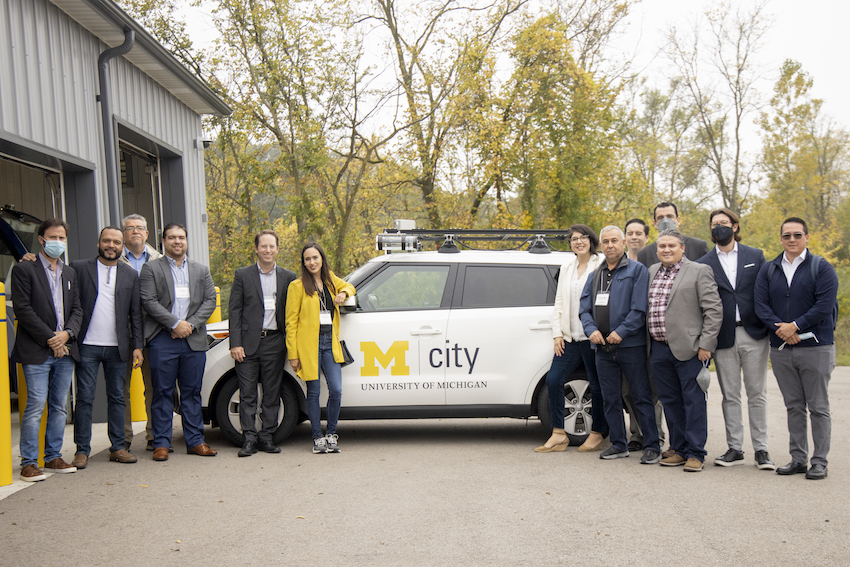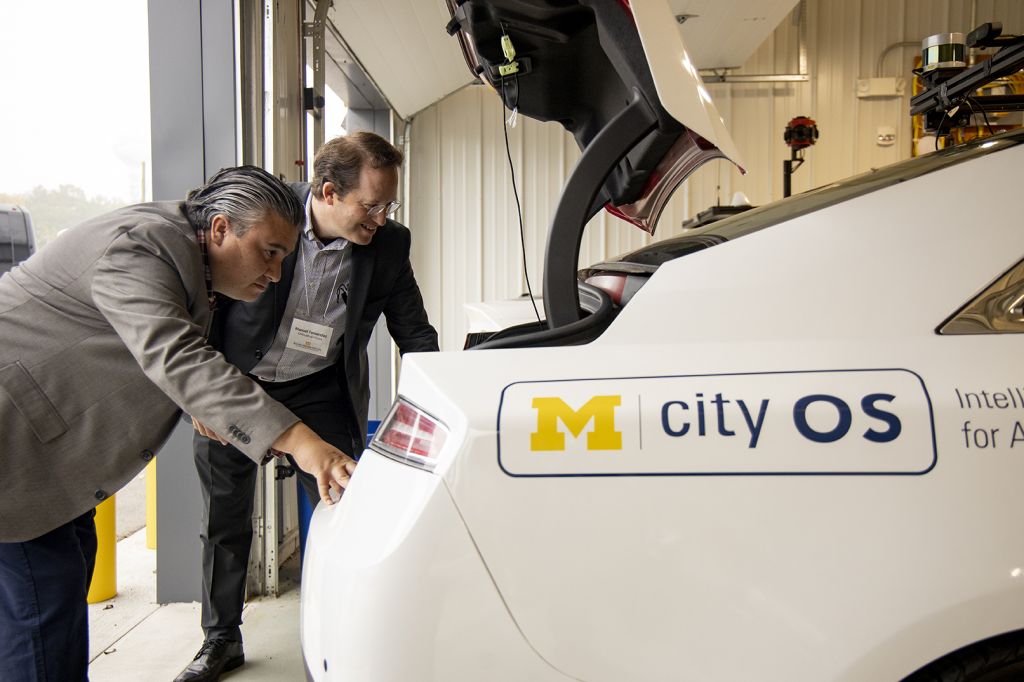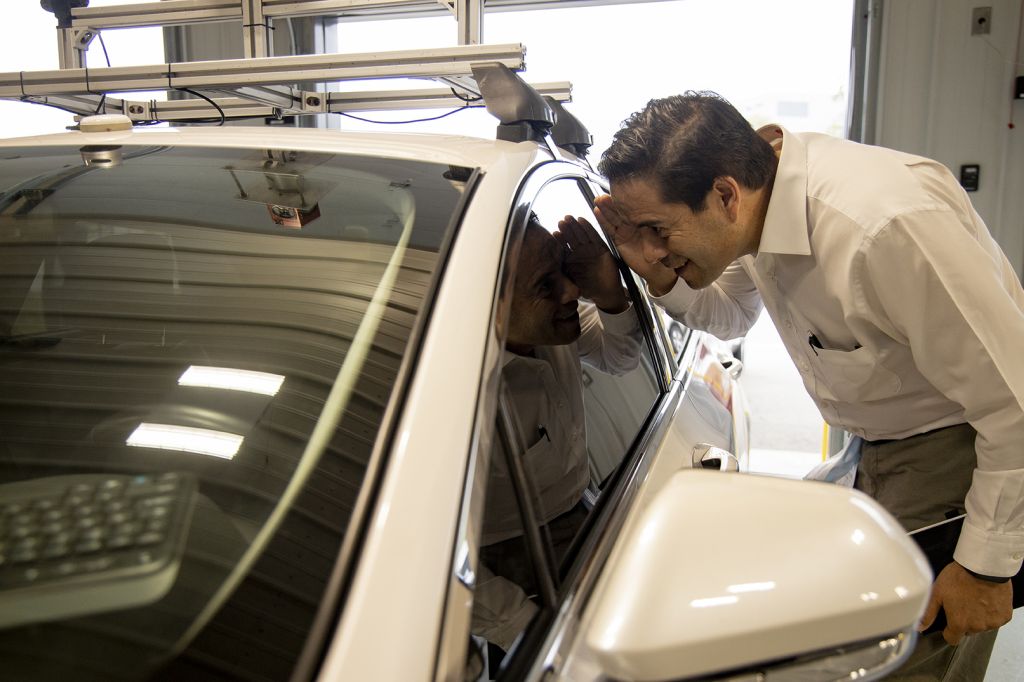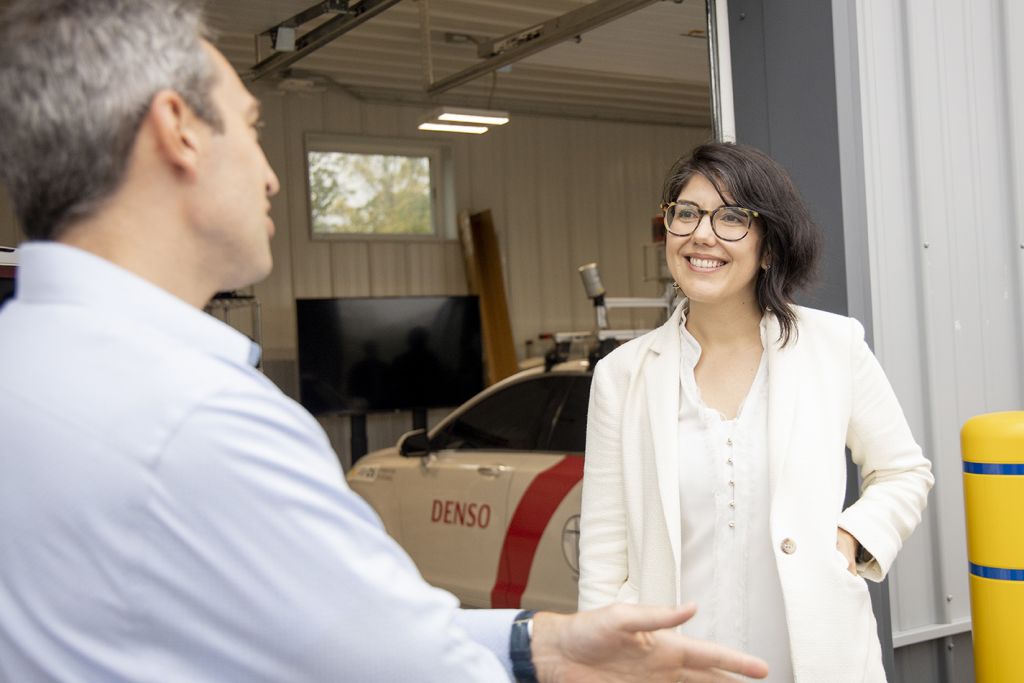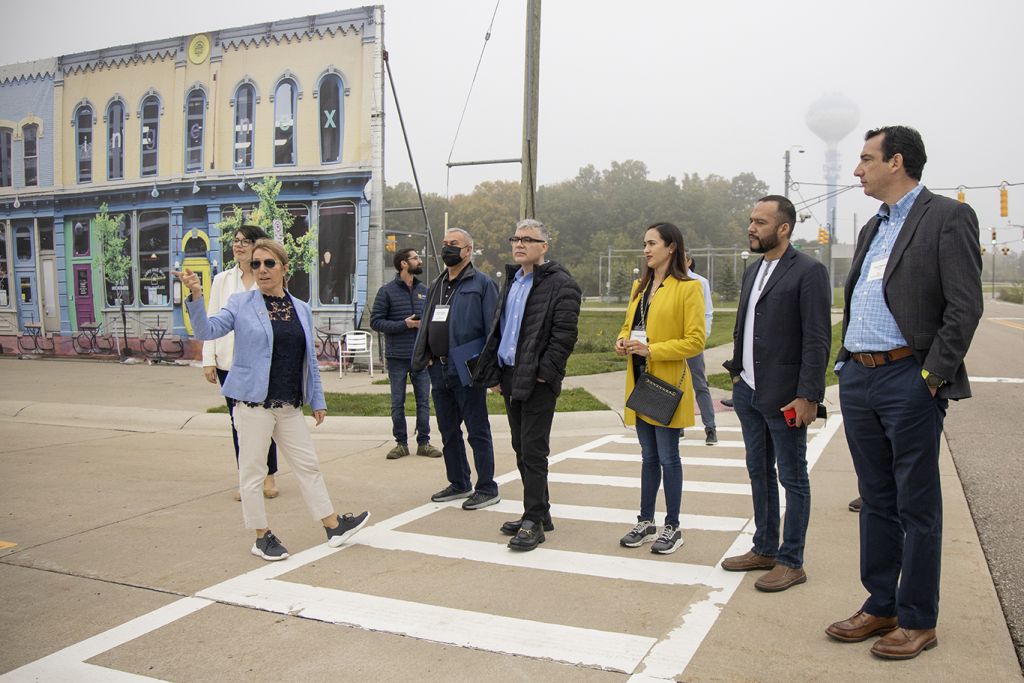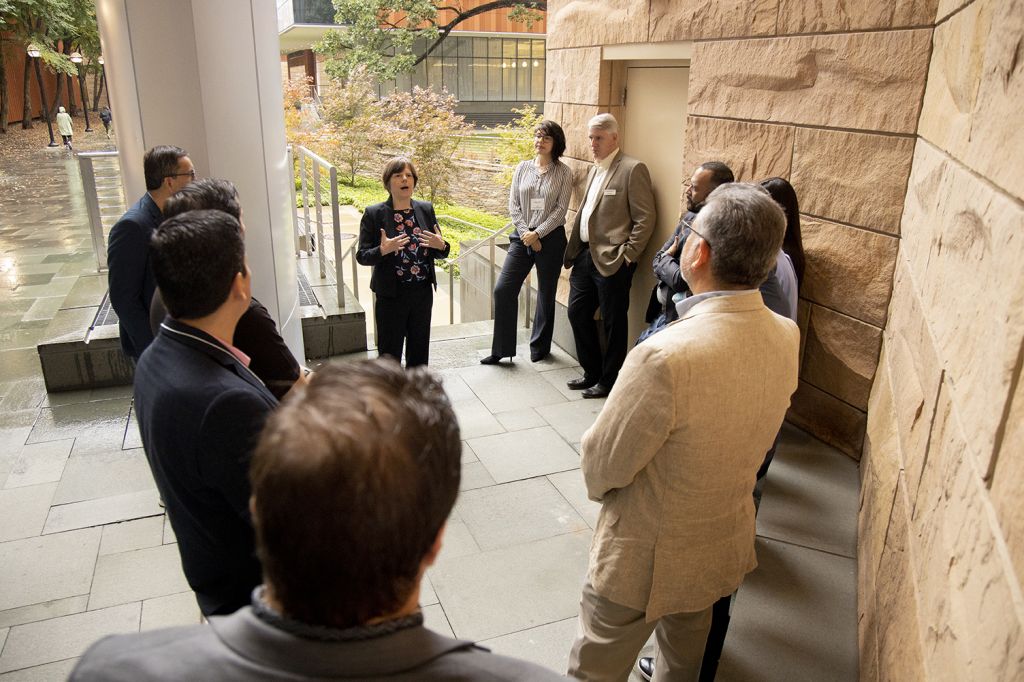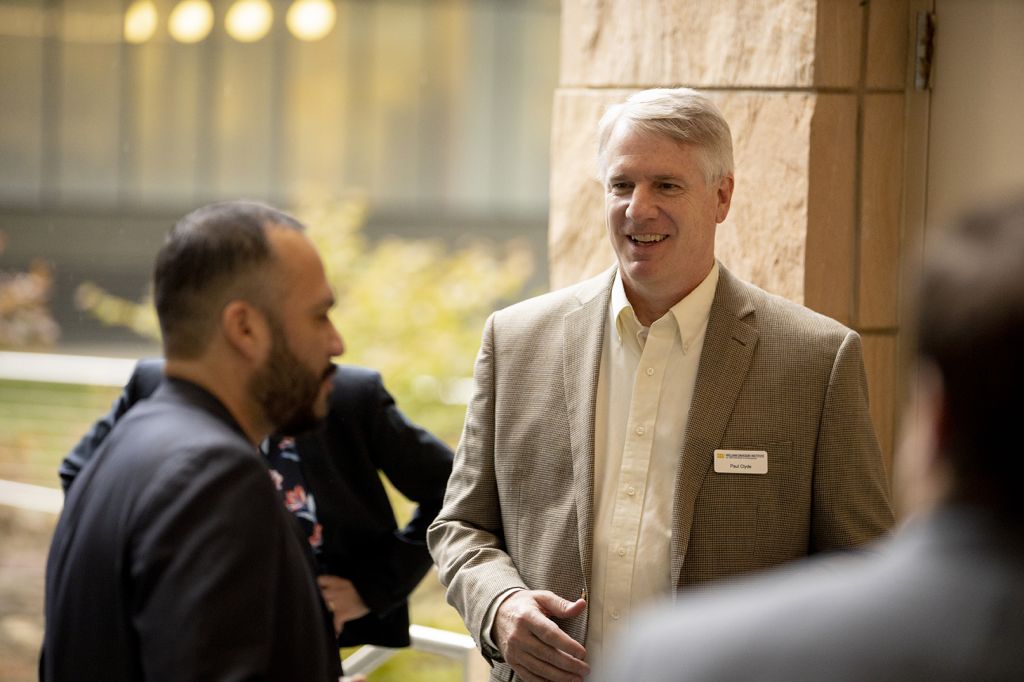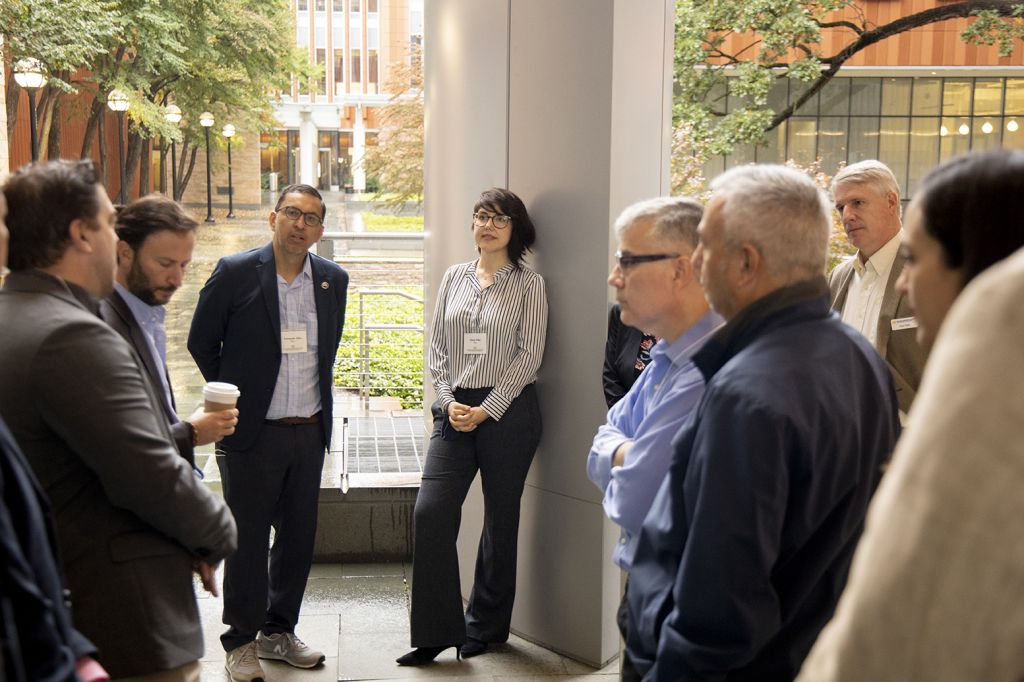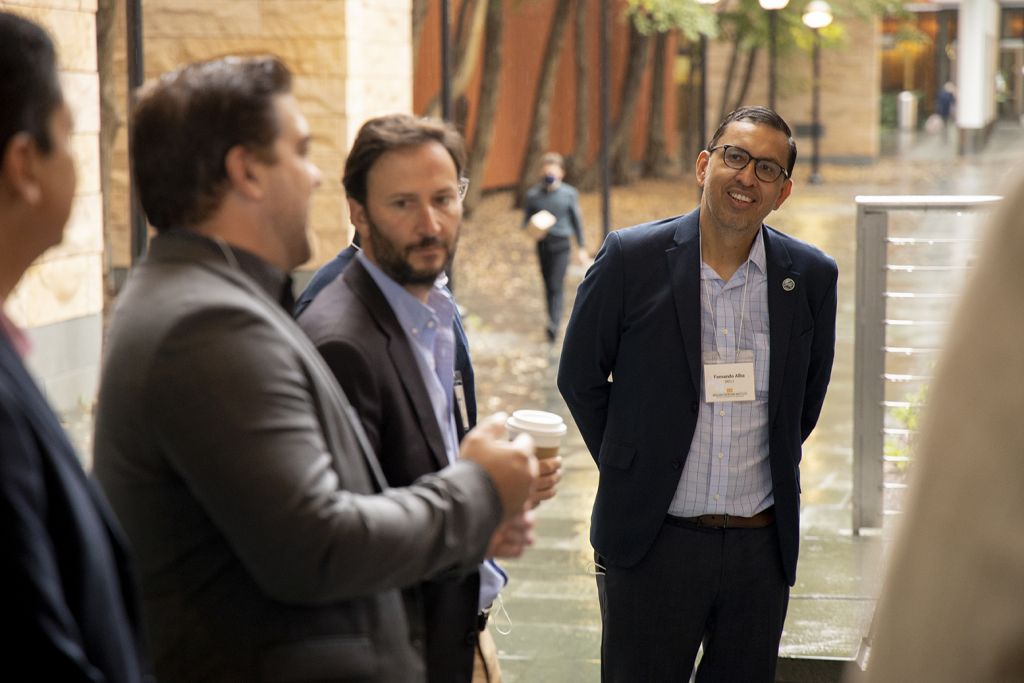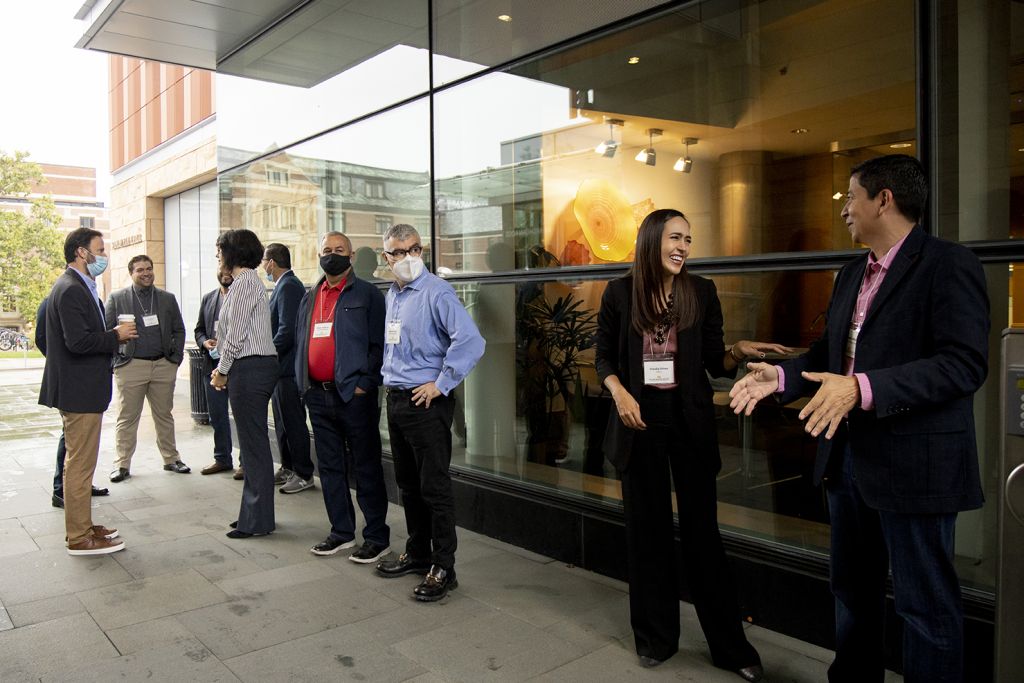Mobility Movers: WDI Hosts Mexican Automotive Delegation
Friday, October 8, 2021
The Week-Long Visit Included Discussions with U-M, Detroit Centers of Excellence in Automotive and Workforce Innovation
Note: This was the first in-person event WDI has held since the Covid-19 pandemic. WDI followed all protocols, including masking indoors and vaccine requirements.
The transformation of the global automotive industry in everything from electric vehicles to the supply chains to workforces that will build them, requires new ways of thinking, new connections and new conversations.
With this massive shift in mind, WDI, in collaboration with Economic Development of Juárez and the US-Mexico Foundation (USMF), convened a week-long visit for 15 senior leaders in business, technology, academia and government from the State of Chihuahua, Mexico – a critical hub in the North American automotive industry.
The delegation met with faculty and other experts representing the University of Michigan’s Ross School of Business, Transportation Research Institute, College of Engineering, Technology Transfer and Mcity – U-M’s public-private mobility research partnership. The group also traveled to Detroit, meeting with representatives from TechTown, NextEnergy, the Office of Future Mobility and Electrification, Detroit Economic Growth Corporation, and Automation Alley.
Juárez, Chihuahua’s largest city located on the border with El Paso, Texas, is home to more than 330,000 manufacturing workers, with about half employed by over 100 auto-related companies operating there. Regional economic development leaders say they’re working to advance multiple initiatives focused on mobility, innovation, digitalization, smart city technologies, and workforce development and upskilling.
Fernando Alba, Executive Director of Economic Development for the city of Juárez who led the delegation, noted the industry shift away from the internal combustion engine toward electrically powered vehicles that require fewer parts, will mean cleaner transportation, but also far fewer components produced there.
“The challenge we have is how do we adapt our people, our talent and our companies,” Alba said. “As a city with a heavy manufacturing tradition that is moving away from what we used to do, we need to learn the new tools and techniques to continue to be a leader in the new world of mobility”.
Alba noted that Juárez and the Detroit area share several similarities; both border other countries, the U.S. and Canada, respectively. Their local economies rely largely on the automotive industry, and they both have faced serious social and economic challenges that have hindered economic growth. Ciudad Juarez is now at the beginning of a similar transformation to the one Detroit went through just a few years ago as leaders launched a new vision for development, innovation and inclusion. While challenges remain, the city offers a cautionary tale and many lessons learned that Ciudad Juarez leaders are taking home with them.
“The William Davidson Institute is a key player for us in what we want to do in the future for our region. Being based here at the University of Michigan and close to Detroit, there is no better place to be,” he added.
Alba was accompanied by leaders from Economic Development of Ciudad Juárez, and of the city and State of Chihuahua and the Southwest Manufacturers Industry Association. The delegation also included representatives from companies including Dell, and Microsoft; as well as from the Artificial Intelligence Center, National Polytechnic Institute, Technology Hub, Technology Development Institute, and the Technical Institute of Juárez.
The group participated in a weeklong learning and exchange program that included stops and meetings in Ann Arbor at the American Center for Mobility, Washtenaw Community College, the Center for Automotive Research, the University Research Corridor, the Michigan Economic Center, and SPARK; as well as connecting with mobility players at the Ann Arbor Mobility Summit.
Diana Páez, senior director for Grants and Partnerships at WDI, said hosting the delegation was an excellent example of how the Institute convenes a wide spectrum of players around the shared opportunities in low- and middle-income countries.
“How we all think about mobility is changing faster than any one company can possibly manage. Keeping pace with that change will require novel approaches and new conversations, not just in Southeast Michigan or Chihuahua, Mexico, but around the world,” Páez said. “The change is happening now, and the consequences have implications for multiple economies.”
Additionally, when it comes to the mobility industry, what happens in Detroit reverberates not only in Mexico but around the world – from supply chain issues to the shift toward electrification. Indeed, every move by the U.S.-based automakers has ripple effects in other markets, and the challenges – and opportunities for businesses – are worth exploring, Páez said.
Building on this effort, on Nov. 5, WDI and Michigan Ross, in collaboration with USMF, will host a virtual roundtable to discuss further integration within the auto industry in the U.S. and Mexico. The event, A Vision for a Stronger U.S.-Mexico Partnership: Emerging Opportunities in the Automotive Industry, will bring together accomplished diplomats, executives, analysts and academic leaders to share their perspectives on trends and opportunities for players in both countries.
“At WDI, bringing together the players who truly drive economic growth and opportunity is what we do,” Páez said. “The future of mobility is global, and that’s where we are well-positioned to have the most impact. For us, it’s where the rubber hits the road.”

